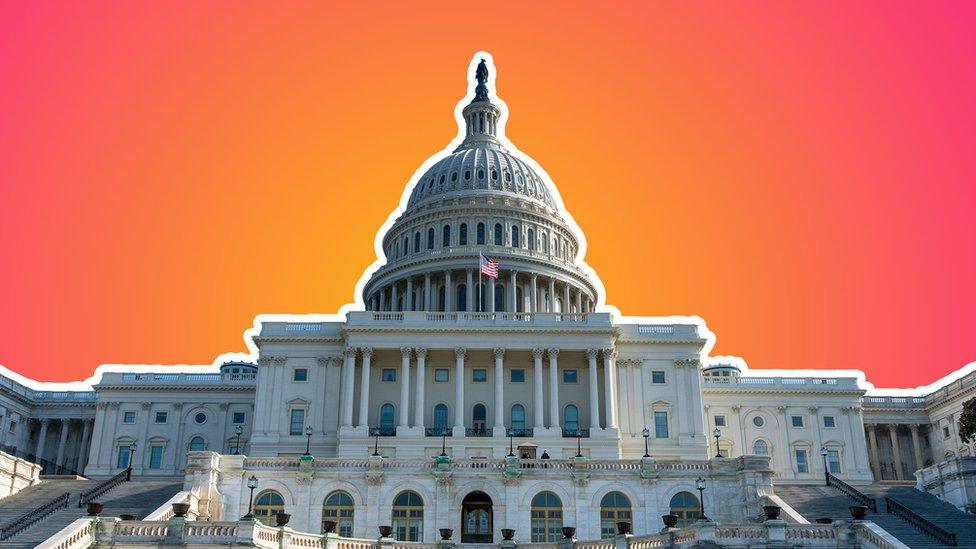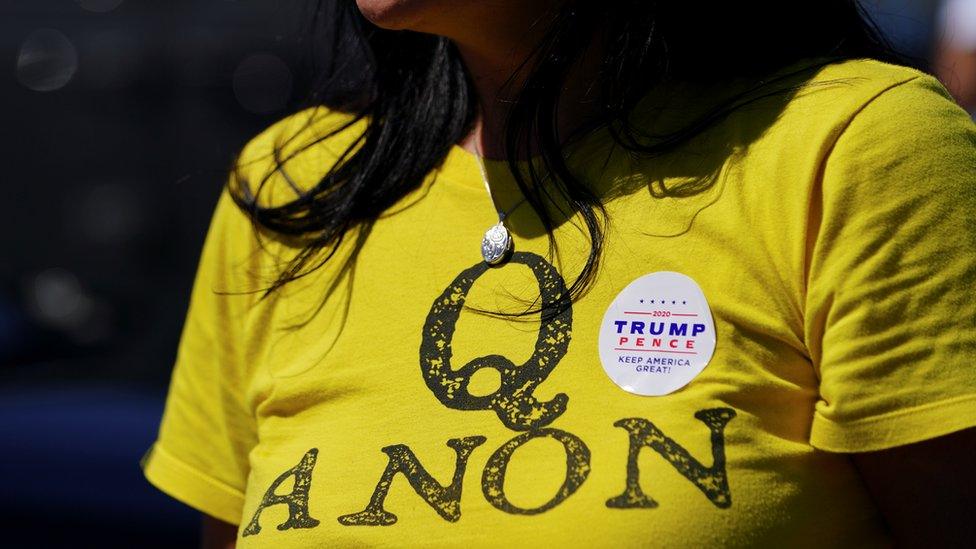Tech Tent: Giants under the cosh from Congress
- Published

Was this the week that the tide finally turned against the tech giants in the United States?
A congressional committee lashed out at the anti-competitive practices of Apple, Amazon, Facebook and Google, and in this week's Tech Tent we look at whether strong words may be followed by tough action.


A 450-page report from the House Judiciary Committee exploring breaches of anti-trust law might sound like a cure for insomnia, but the BBC's man in Silicon Valley, James Clayton, tells us it is anything but a dry read.
"The quote that jumps out is that it says that these companies that started in the garages of houses in Silicon Valley have emerged to be the monopolistic powers, the likes of which we haven't seen since the oil barons and railroad tycoons of the 20th century," he explains.
As well as fierce criticism of the way the companies abuse their dominant position, the report outlines ideas about what might be done about it. That may keep the likes of Amazon's Jeff Bezos and Facebook's Mark Zuckerberg awake at night.
Tougher times
Until now, it has been the European Union and its Competition Commissioner Margrethe Vestager who have been taking on the tech giants, imposing big fines on Google and Apple, and demanding changes in their behaviour.
But Harvard University's Professor Jason Furman tells us Congress seems willing to go further: "In many ways this new House report leapfrogs past Europe into an even more aggressive posture on the big tech companies."
Prof Furman, who chaired an inquiry into the power of the tech giants for the UK government, outlines three areas where the American politicians seem willing to take aggressive action.
He says they want to make it much harder for big tech companies to buy up smaller ones, in the way that Facebook snapped up Instagram and WhatsApp. That is a move he strongly supports: "We've made the mistake of allowing too many mergers that we shouldn't have."
The politicians also want to ban the tech giants from going into what are described as "adjacent businesses": "So Amazon could not sell products on its own platform, it could only sell products from other companies."
WATCH: Who are the 'big four' and just how much power do they have?
But Prof Furman says the big news is that the report calls for a change in an American approach to competition policy - or antitrust as it's known in the US - which has assumed there is no problem, as long as consumers are not paying higher prices in the short term.
"It proposes to change the way antitrust is done more generally, to take the focus away from a sole focus on consumers, and to also look at questions like small businesses, workers, and broader issues like the functioning of democracy," Prof Furman explains.
Election misinformation
That issue about the functioning of democracy is one where Facebook is in the spotlight right now as a hugely powerful platform for misinformation in the run-up to the US election.
This week the social media giant moved to shut down groups spreading the Qanon conspiracy theory, which promotes the idea that President Trump is leading a battle against satanic child abuse.
Trump on QAnon: 'They do like me'
But the BBC's Disinformation Reporter Marianna Spring tells Tech Tent that the crackdown may have come too late for many who have disappeared down the Qanon rabbit hole.
She's been speaking to someone who wants to be known as "Joe", whose father has become obsessed with the conspiracy theory.
"I think the ban is great," he tells her. "However, my dad has never really acknowledged that he is part of any Qanon following, despite echoing their 'where we go one, we go all' slogan and sharing many, if not all, of Qanon's beliefs."
He says his father's exposure to this material actually comes from YouTube, not Facebook - "so what's Google going to do about it?"
The pressure on the tech giants to take responsibility for their wider impact on society is growing. But just how likely they are to face new regulation may depend on the outcome of the US election.
It was the Democrats on the House Judiciary Committee who wanted a really tough approach - a minority report from the Republicans agreed there was a problem, but favoured milder solutions.
So the tech firms may have more to fear from a President Biden than a returning President Trump.
- Published6 January 2021

- Published6 October 2020

